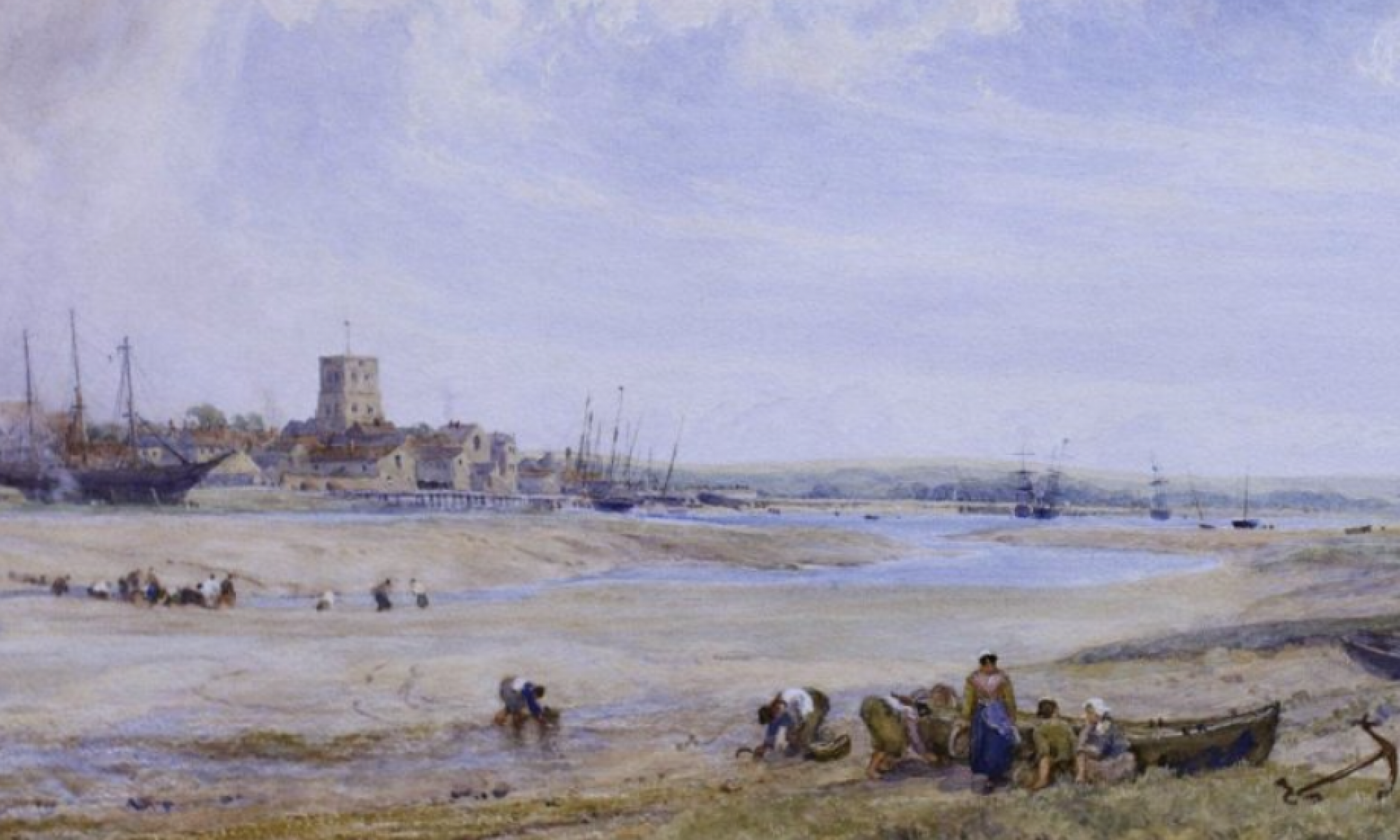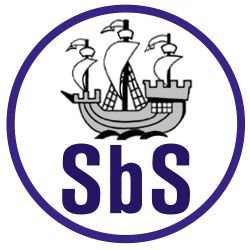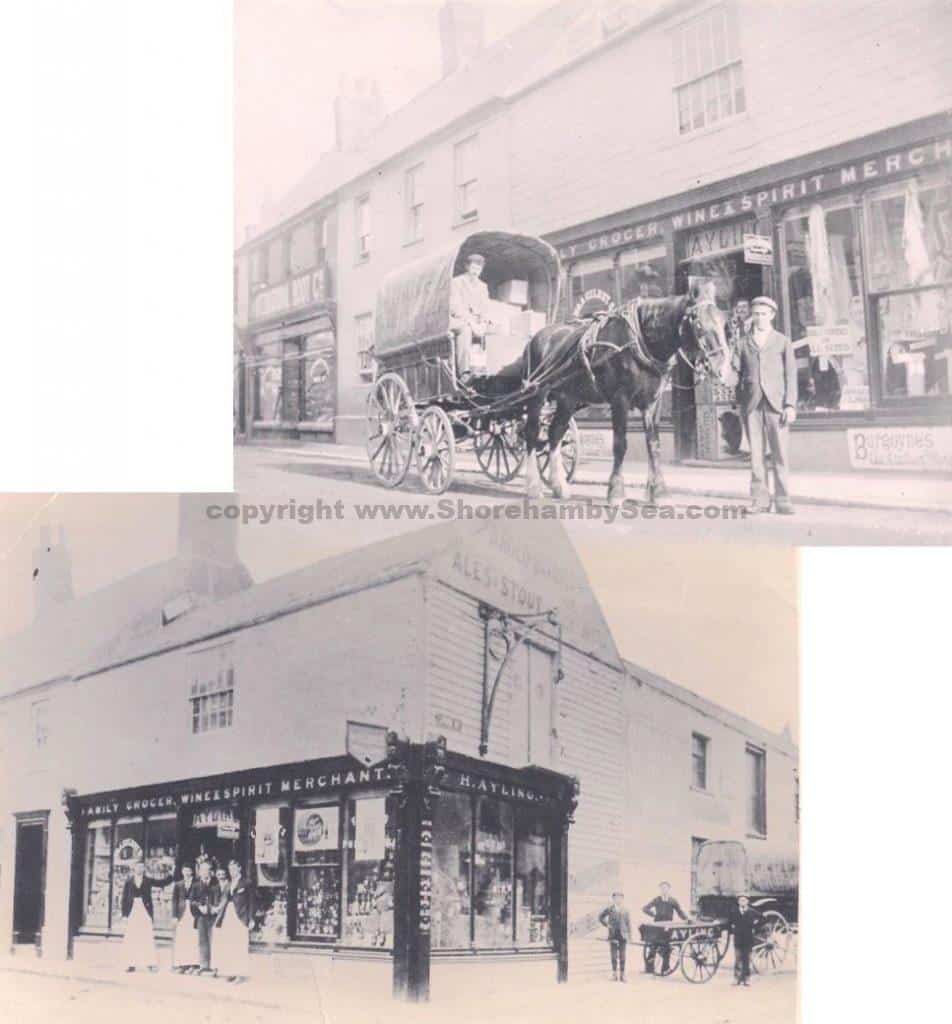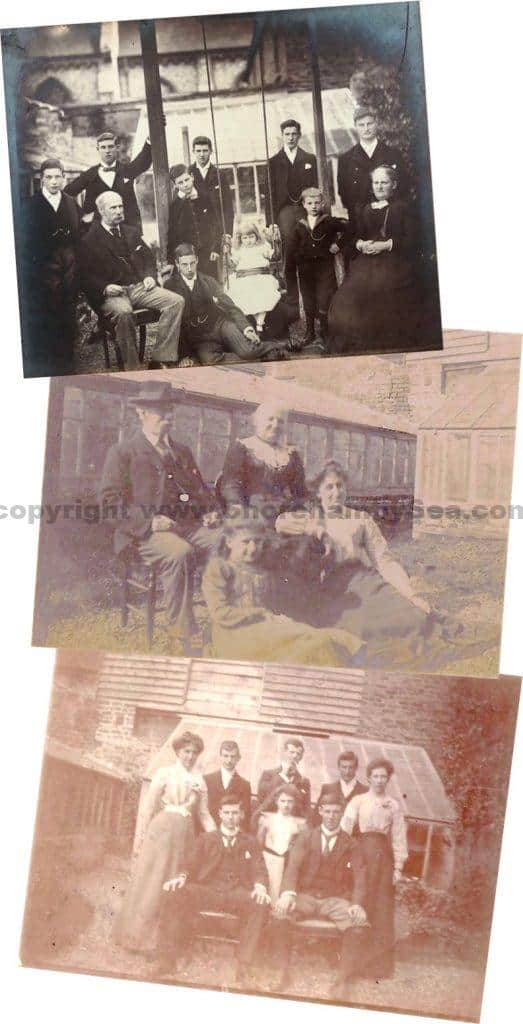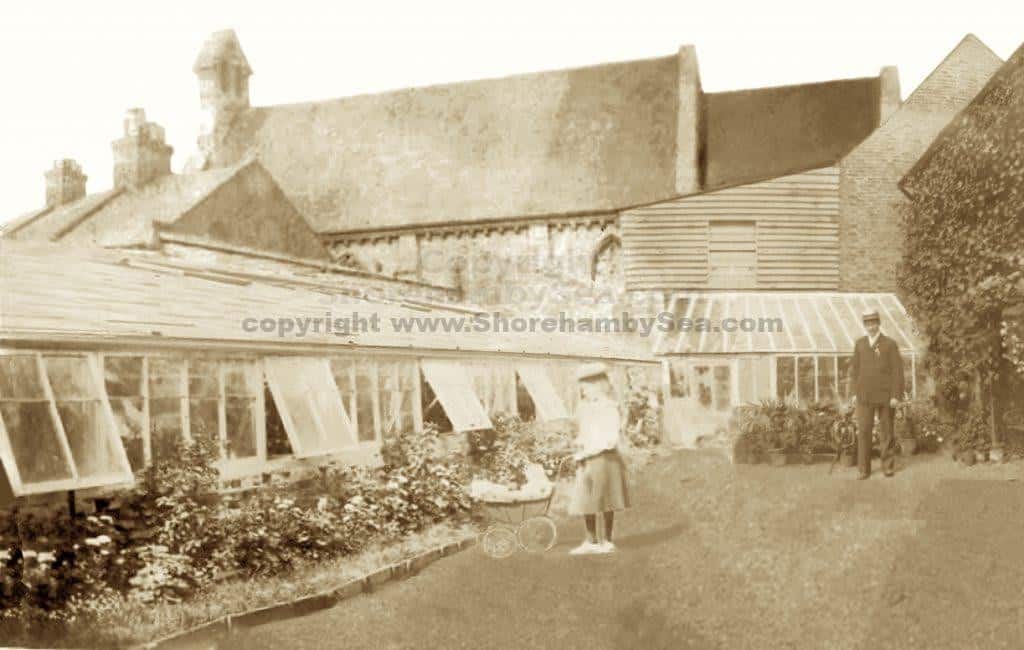The Aylings were family grocers, drapers and furnishers at 54 and 56 High Street on the western corner with John Street. Henry Ayling born 1838, a master grocer from Midhurst and his wife Fanny arrived in Shoreham during the mid/late 1860’s after acquiring the premises.
Number 54 was the shop on the corner of John Street with the Ayling residence (56) next to it. The shop had a swiveling derrick for lifting groceries into the loft alongside. Number 56 was used solely as their residence and during the first years also housed their employees – assistants John Payne and William Pain (sic) together with Nancy Pennick and Jane Apted, the latter of whom were also assistants but doubled as servants in the house as well.
The years that followed saw the births of the Aylng’s children – sons Herbert (b.1870), Horace (b.1871), William (1873), Henry junior (1875), Reginald (1877), Ernest (1879), Edgar (1882), Gordon (1886) and finally a daughter Constance (1889).
Most of the children were to be directly or indirectly employed in the family business. Horace and Reginald became horticulturists; William and Gordon worked on the grocery side; Henry junior and Edgar in the drapery and Constance also assisted in the shop.
Ernest though became an estate agent – he and his brother William played football for Shoreham F.C., during the club’s formative and successful years and both were selected by West Sussex and Sussex F.A. for representative matches. Constance was to marry Brunswick Road stationer Arthur Cottee in 1916.
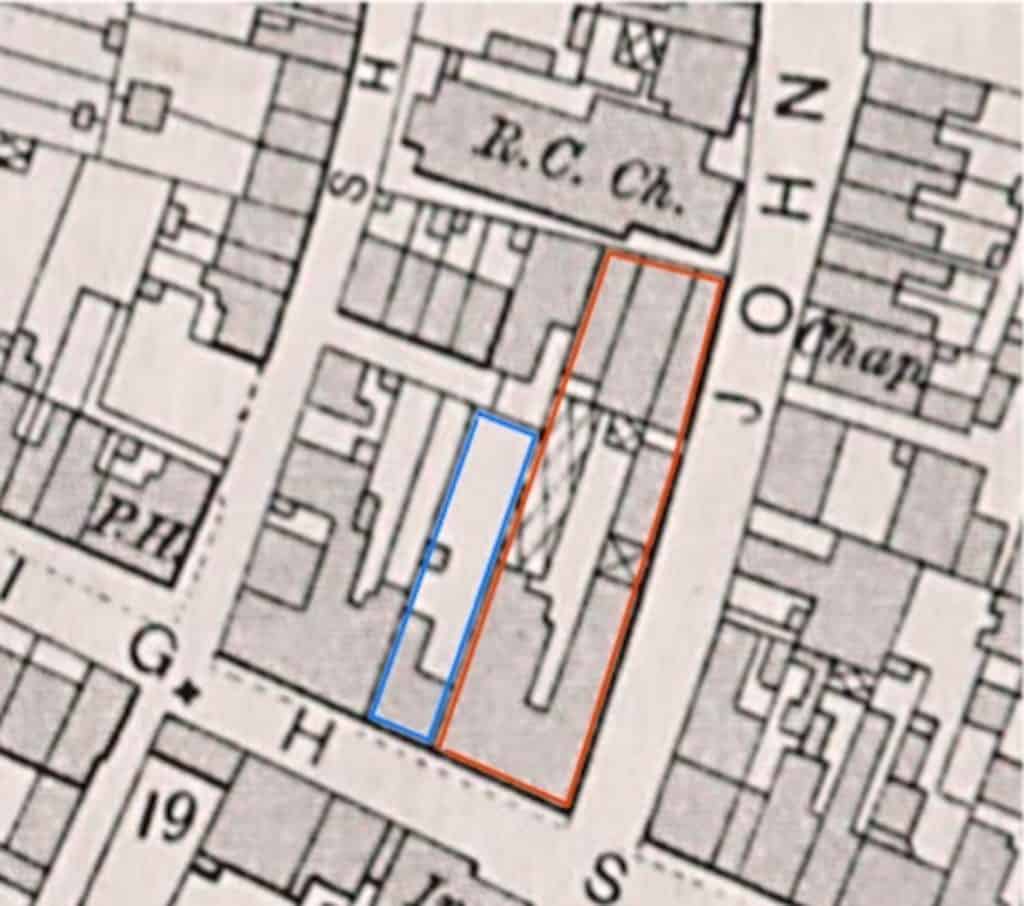
The red border shows the extent of the commercial property and blue the adjoining residential house. The shop faced on to the High Street, the garden had greenhouses in which to keep fresh produce. Storage for goods was also provided in three warehouses at the bottom of the garden and more on the John Street side where access from the latter was gained through an enclosed passageway.
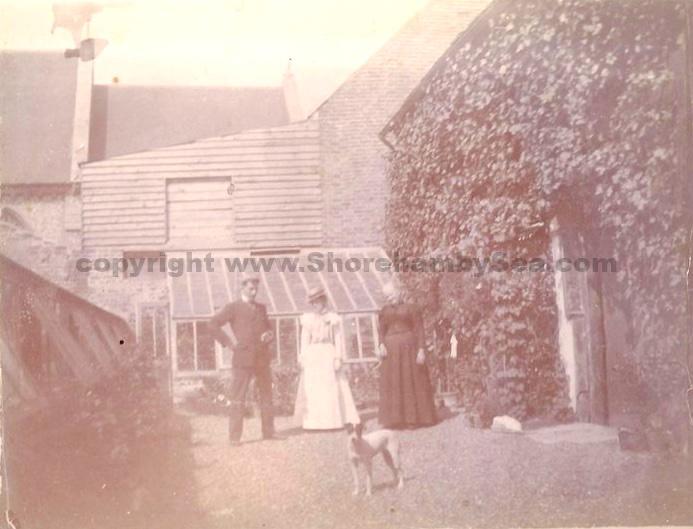

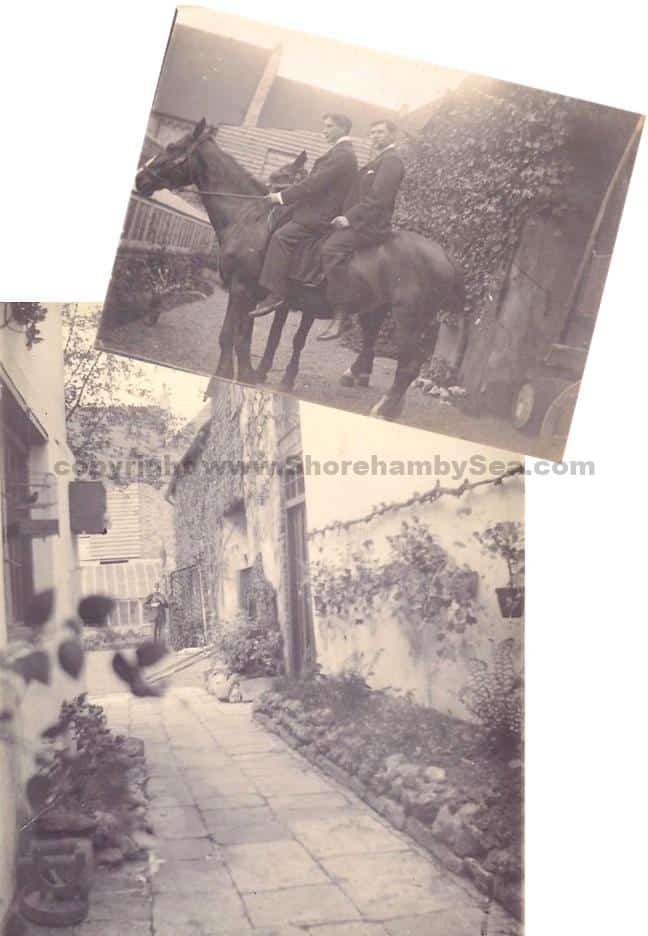

The business appears to have been quite up-market as evidenced by a survivng receipt book ( see details on Ayling Stores Order Book in the research section https://www.shorehambysea.com/ayling-stores/ ) This is interspersed with pink blotting paper pages with advertisements on and shows one of their customers was a branch of the wealthy Sassoon family who at the time lived in First Avenue, Hove (Flora Sassoon, the writer and poet Siegfried Sassoon’s grandmother, also lived nearby). Even in the days of horse- drawn delivery carts businesses like Aylings and others in Shoreham traded as far afield as Brighton and Worthing.
The items listed in the book are largely everyday grocery items including fruits such as melons, oranges, lemons, sultanas, currants, as well as walnuts in bottles, herbs, lentils, milk, sugar and flavourings etc., all used in the preparation of food and without much doubt ordered and delivered to the cook and servants in the Sassoon household without involving the family itself. Hardware items are also included:- a broom at 1 shilling and three pence, brushes, shovels and coppers.
Popular brand names of the time appear such as Bluebell (metal polish), Bengers (supplement for children and invalids) but what was ‘Wem’ and what were ‘Wish Papers’? Products rarely seen now like pea flour (used in baking) and sperms (a white, waxy substance produced by sperm whales and used in candles). Bacon was very popular appearing in most deliveries in quantities of over a pound in weight and a bottle of brandy is shown at 5s/6d, toilet paper (no old newspapers for them) and a touching inclusion of ‘7 puppy biscuits.’
Paid orders in the book were receipted with a rubber stamp impression and signed by Gordon Ayling, albeit in pencil. Amounts over £2 were receipted over a one penny postage stamp.
The Ayling shop closed around 1916 for reasons unknown – a little surprising perhaps when most of the family were still in Shoreham. Henry senior died in 1922 aged 83; William, Edgar, Ernest and Horace were the only sons to remain living and working in Shoreham (at Gordon, Rosslyn and Victoria roads) and Constance of course at Brunswick Road.

Roger Bateman
Shoreham
March 2013 – updated January 2023 with grateful thanks to Mary Gibbs
Additional info: https://www.shorehambysea.com/ayling-stores/
